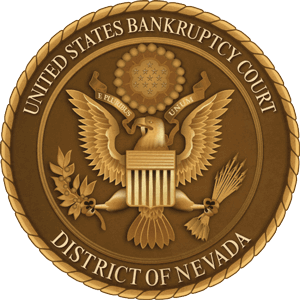Mechanics Liens
A lien is a legal tool that affects the title to property. When a lien is in place, the owner no longer wholly owns the property. Instead, the owner has lost a “clear title” to the property. The property ownership is now “subject to the lien,” meaning the mechanics liens or other lienholder must agree to remove it. An owner can only transfer a clear title if the lien is released. Releasing a lien typically involves paying the total cost of the mechanic’s services and parts, plus interest and, of course, any legal fees.
This payment is usually made to the lienholder, who then issues a lien release document. This document is then filed with the appropriate government agency, such as the DMV or County Recorder, to release the lien officially. Lliens can substantially affect someone’s property ownership interests. A lien won’t disappear when the owner signs a title document to someone else.
For instance, if a mechanic repairs your vehicle in Nevada, as in many other places, the mechanic can keep possession of it until you pay the bill. However, even if the owner has possession of their vehicle after a mechanic makes repairs, the mechanic may claim a lien. This lien is not just a financial burden, it’s a loss of part of the owner’s property rights. Transferring vehicle titles is done through the State DMV, so the lien is recorded with the DMV. Any effort to give or sell the vehicle will be thwarted by DMV when there is a lien.
DMV will only let you obtain a title to give to another person once the lien is released. If the mechanic possesses the vehicle, the owner may only have a brief time to pay the lien. The mechanic can acquire complete vehicle ownership due to a mechanic’s lien if the vehicle is in the mechanic’s possession.
Another example is if an air conditioning repairman, plumber, roofer, solar company, water softener company, or other licensed professional performs work or provides materials to your home or any other real estate you own. These professionals can easily take their bills to the county recorder’s office and fill out a simple form to create a lien. This lien then prevents you from transferring the title to someone else. Because a lien against real estate is attached to the Deed, borrowing money against the property or obtaining title insurance is only possible once the lien is repaid. The lien must be released to obtain a complete or “clear” title.
If a mechanic repairs your vehicle, he can keep it until you pay the bill. Obviously, you will pay your mechanic for the repairs he makes. Or if a roofer does work on your home, he can record the bill in the county so that you are required to pay him. So pay your roofer and other contractors for the work they perform.
The crucial part of the mechanics liens is that it can be implemented without the permission or even knowledge of the property owner. The mechanics liens must only claim that they provided work, materials, or both and were not paid. Proving this claim is not required to place the lien on the property.
Laws governing mechanics liens in Nevada are set out in NRS 108.221 to 108.246. These laws are intricate and multifaceted. It is crucial to understand these laws when dealing with liens on property, be it a vehicle, boat, or real estate. The frustration of both the mechanics liens imposing the lien and the property owner losing their property rights is a testament to the complexity of this law. While paying the lien in full is one way to remove it, there are other strategies or loopholes that can also eliminate mechanics liens.
An attorney with lien experience, such as A Fresh Start Law, can simplify the removal of these liens. It’s important to note that bankruptcy generally will not remove a lien.
Often, people only discover a lien once they wish to sell the property. Liens are found when someone dies, leaving the real property and the mechanics liens responsibility to their heirs. Unfortunately, even death does not release a lien, which could last for many years.




